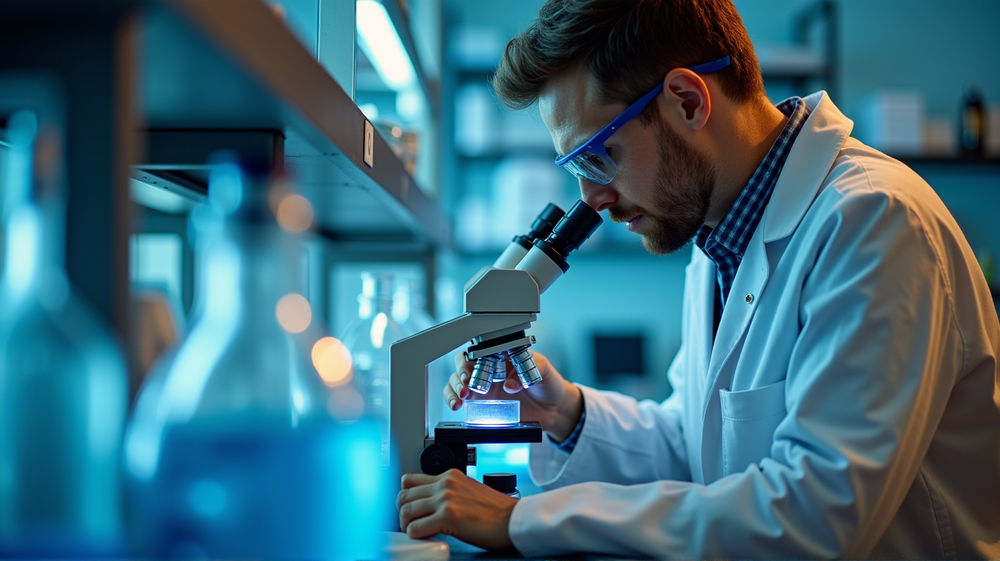In the unpredictable world of street drug supply, clarity often seems elusive. But at the heart of this swirling chaos stands Nabarun Dasgupta, a keen scientist whose pioneering research has breathed life into the practice of harm reduction. His work has captured the essence of what’s truly possible with science — a beacon of hope for communities across the United States. His innovative approach earned him the prestigious 2025 MacArthur Fellowship, commonly referred to as the “genius” grant. As stated in North Carolina Health News, his award underscores the critical importance of his contribution to public health.
Unraveling the Mysteries of Street Drugs
Dasgupta’s journey is deeply intertwined with the ongoing narrative of guiding principles to mitigate the impact of illicit drug use. For over two decades, he has dedicated himself to meticulous documentation and real-time analysis of street drugs. By cataloging drug use data, he provides invaluable insights into the substances plaguing communities — a bit like tracing hidden dangers in uncharted waters. This scientific rigor emboldens harm reduction workers to meet challenges head-on with critical tools like naloxone and testing strips that detect deadly additives such as fentanyl.
Dasgupta prominently stands out for his unyielding resolve to uphold the dignity and survival of all, irrespective of their substance choices. This philosophy is what he refers to as “science in service”— a poignant mix of innovation and empathy reverberating beyond mere academic exploration.
A Revolutionary Drug Checking Lab
In the early days of 2020, during the height of the coronavirus pandemic, an unexpected encounter guided Dasgupta to innovate further. His realization that the same logistic strategies used for COVID-19 testing could apply to street drug samples led to the inception of a mailing system tailored for drug checks. This step was not just a small leap forward; it was a giant leap for community health.
Now, the Street Drug Analysis Lab at UNC tests thousands of samples from across the country. The results are anonymously posted, offering lifesaving insights into the complex and ever-changing drug supply. A staggering 458 unique substances have been identified — each a testament to the ever-evolving nature of this clandestine world.
Impacting Lives and Communities
While the street drug landscape shifts with alarming frequency, the solid foundation laid by Dasgupta’s work enables people to make informed choices. It empowers users to adapt their habits, whether that’s using drugs with companionship or sometimes discarding them altogether. Notably, this prompts an ongoing dialogue between the scientific community and those on the front lines of harm reduction.
His work goes beyond just ‘checking the box’ of scientific inquiry and manifests a tangible assurance for communities struggling with opioid crises. With nearly 17,000 samples analyzed, the ripple effect of his work touches lives in 41 states, proving the incalculable value of real-time data and analysis in public health responses.
A Commitment to Harm Reduction
President Donald Trump’s administration may have undermined harm reduction strategies, but Dasgupta’s receipt of the MacArthur award serves as a crucial validation of these efforts. It nurtures the drive necessary to continue essential harm reduction projects, despite political challenges.
Throughout his career, Dasgupta has maintained a steadfast commitment to harm reduction, exemplified through initiatives such as Project Lazarus — hailed as a pioneering example of community-based public health. This commitment ensures that lifesaving tools like naloxone reach those in need, further cementing Dasgupta’s legacy of saving lives through empathy, science, and proactive collaboration.
In the grand tapestry of public health, Nabarun Dasgupta’s efforts stand as a reminder of the extraordinary capacity for change when science, compassion, and innovation interlace seamlessly. It’s a lesson in how one person’s genius can illuminate the path forward in combating one of today’s most pressing health challenges.












